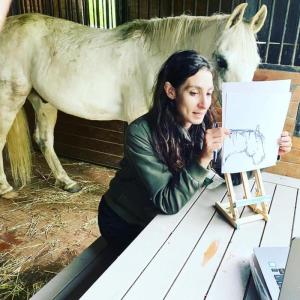Rescue horses move to Freedom to teach, provide therapy for people in need of rescue
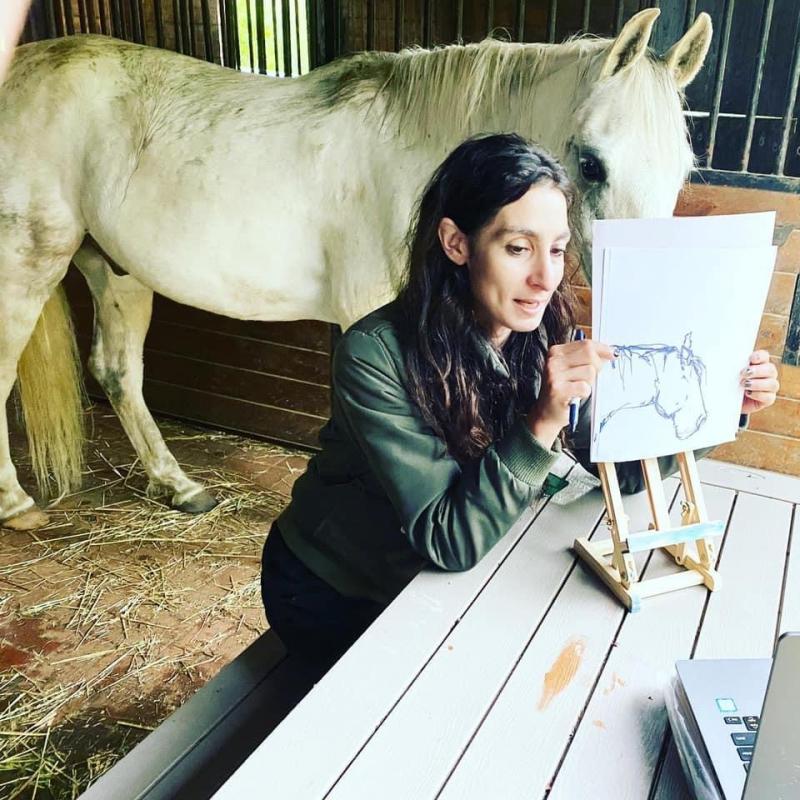 Danielle Roberts and one of her Connecticut horses, Bo Diddley, host an online art session in 2020. (Photo courtesy The Grateful Pony)
Danielle Roberts and one of her Connecticut horses, Bo Diddley, host an online art session in 2020. (Photo courtesy The Grateful Pony)
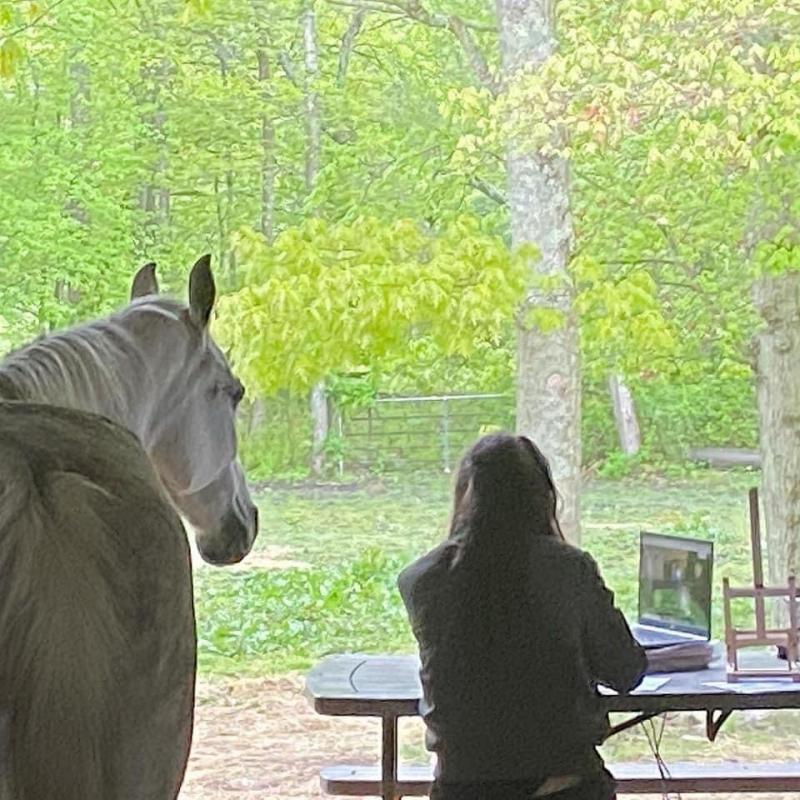 (Photo courtesy The Grateful Pony)
(Photo courtesy The Grateful Pony)
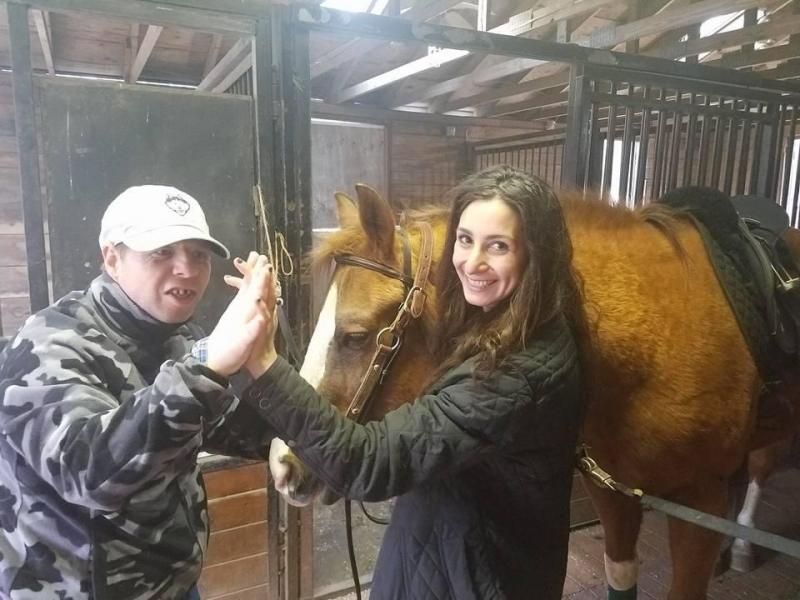 (Photo courtesy The Grateful Pony)
(Photo courtesy The Grateful Pony)
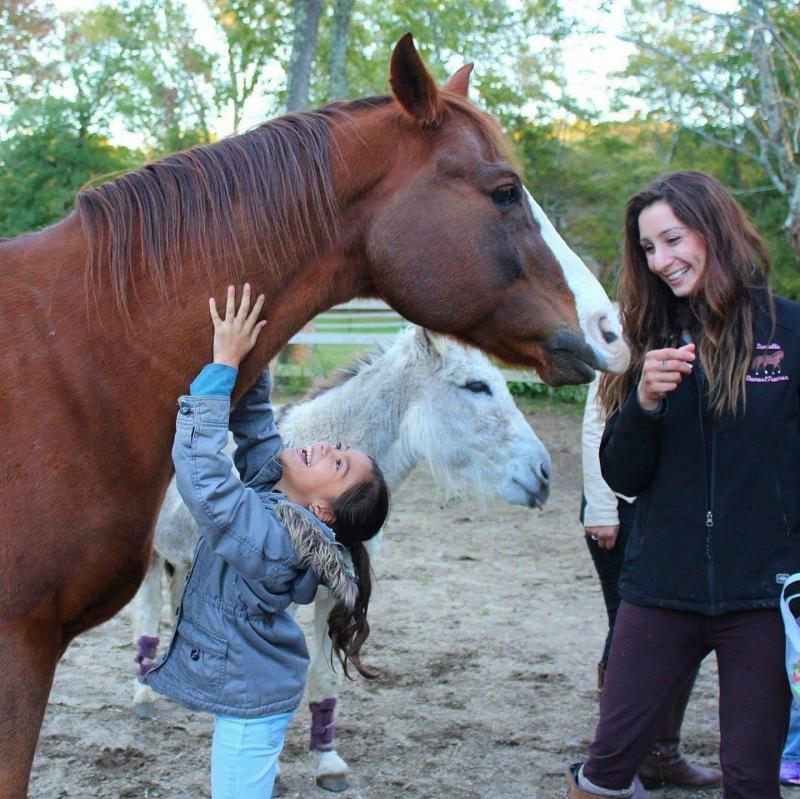 (Photo courtesy The Grateful Pony)
(Photo courtesy The Grateful Pony)
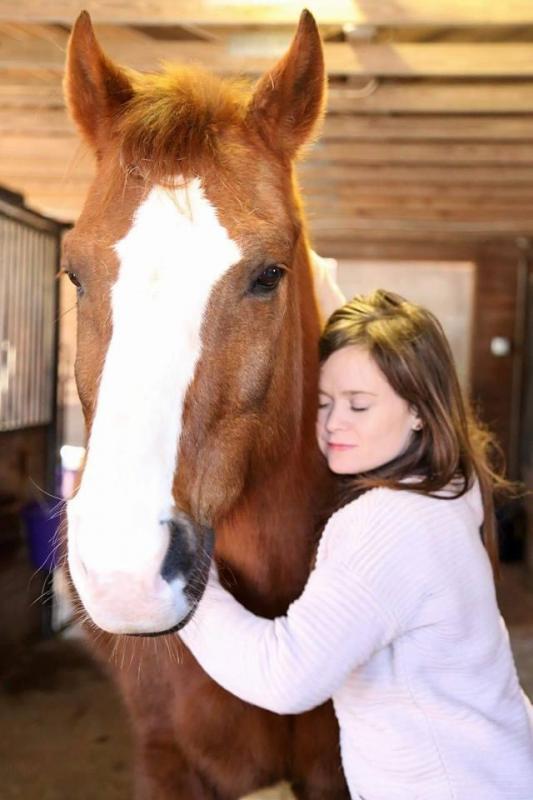 (Photo courtesy The Grateful Pony)
(Photo courtesy The Grateful Pony)
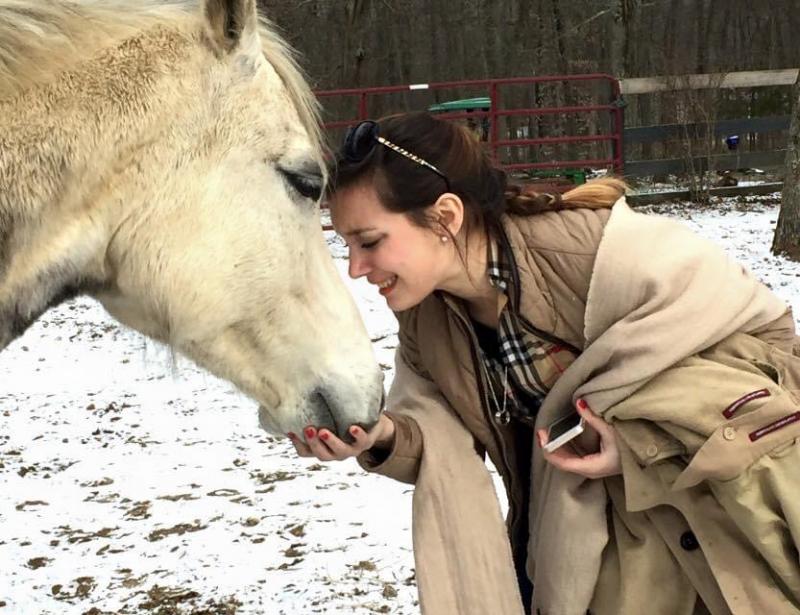 (Photo courtesy The Grateful Pony)
(Photo courtesy The Grateful Pony)
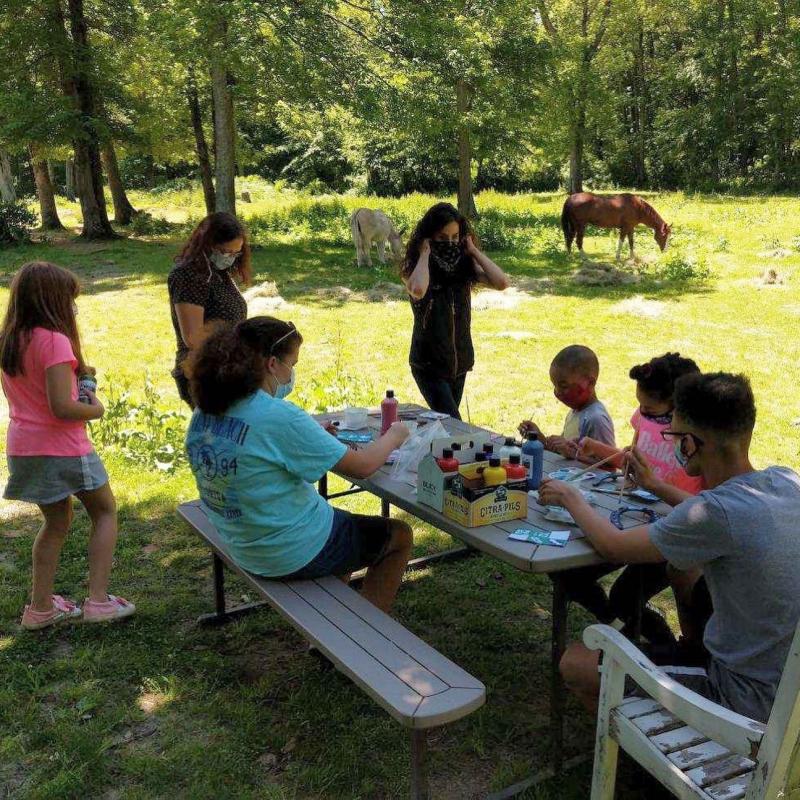 (Photo courtesy The Grateful Pony)
(Photo courtesy The Grateful Pony)
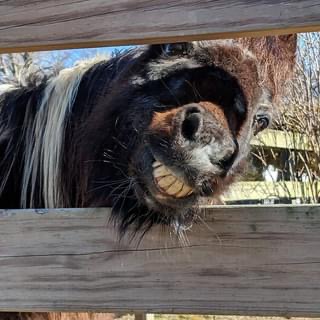 (Photo courtesy The Grateful Pony)
(Photo courtesy The Grateful Pony)
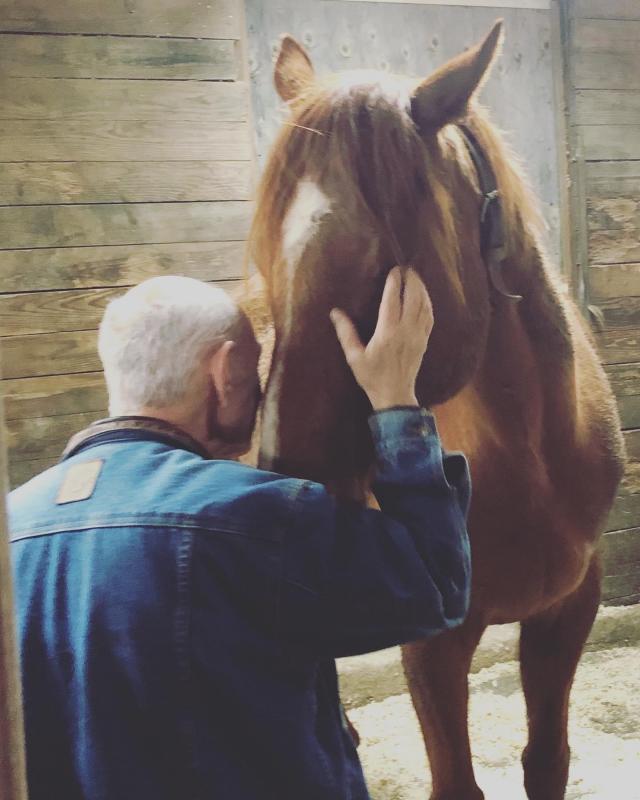 (Photo courtesy The Grateful Pony)
(Photo courtesy The Grateful Pony)
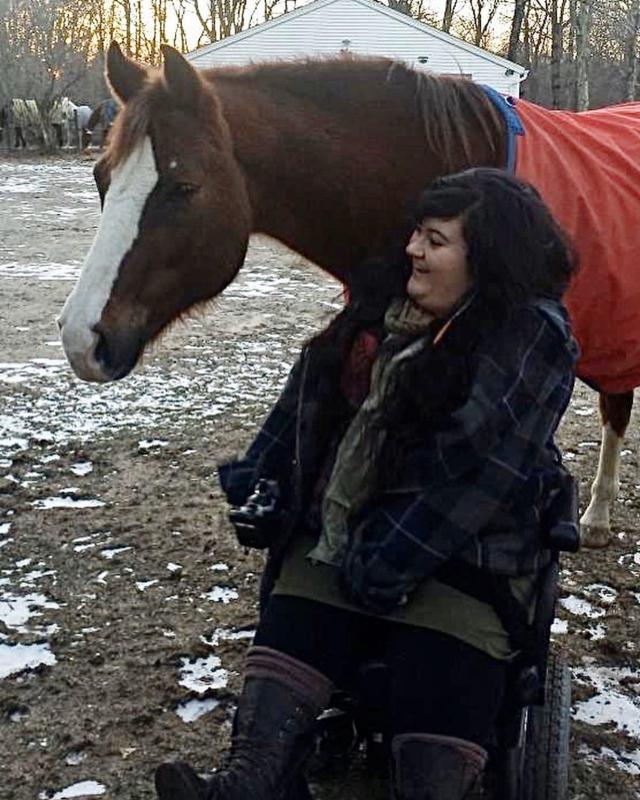 (Photo courtesy The Grateful Pony)
(Photo courtesy The Grateful Pony)
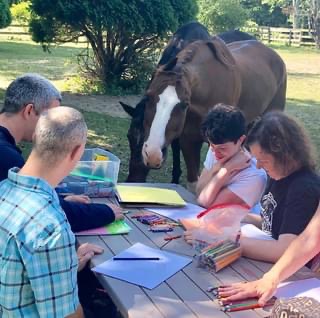 (Photo courtesy The Grateful Pony)
(Photo courtesy The Grateful Pony)
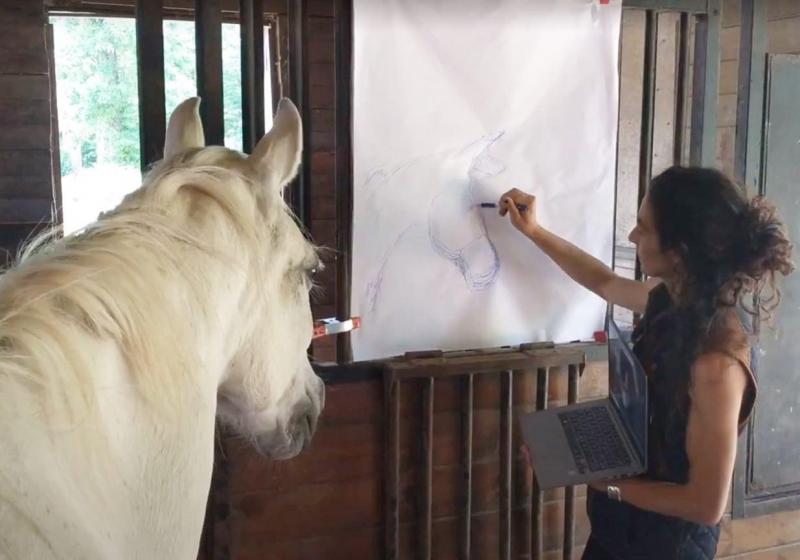 (Photo courtesy The Grateful Pony)
(Photo courtesy The Grateful Pony)
 Danielle Roberts and one of her Connecticut horses, Bo Diddley, host an online art session in 2020. (Photo courtesy The Grateful Pony)
Danielle Roberts and one of her Connecticut horses, Bo Diddley, host an online art session in 2020. (Photo courtesy The Grateful Pony)
 (Photo courtesy The Grateful Pony)
(Photo courtesy The Grateful Pony)
 (Photo courtesy The Grateful Pony)
(Photo courtesy The Grateful Pony)
 (Photo courtesy The Grateful Pony)
(Photo courtesy The Grateful Pony)
 (Photo courtesy The Grateful Pony)
(Photo courtesy The Grateful Pony)
 (Photo courtesy The Grateful Pony)
(Photo courtesy The Grateful Pony)
 (Photo courtesy The Grateful Pony)
(Photo courtesy The Grateful Pony)
 (Photo courtesy The Grateful Pony)
(Photo courtesy The Grateful Pony)
 (Photo courtesy The Grateful Pony)
(Photo courtesy The Grateful Pony)
 (Photo courtesy The Grateful Pony)
(Photo courtesy The Grateful Pony)
 (Photo courtesy The Grateful Pony)
(Photo courtesy The Grateful Pony)
 (Photo courtesy The Grateful Pony)
(Photo courtesy The Grateful Pony)
FREEDOM – On one side of a window, an elderly person with dentures looks out at the same time as a mini horse with no top teeth peers in.
Belfast nursing home residents will soon have a day when horses clip clop through the parking lot. For residents game to get a little close – to brush their hands against the fur – a small paddock meet-and greet circle will be set up as well. The equines love attention, love to work, and love to bond.
Grateful Pony Art and Equestrian Center has settled into the town of Freedom, expanding its existing programs and pursuing potential futures as it sows a transplanted organization into the local roots.
Four rescue horses freely roam the new Smithtown Road property. They sidle up to the doors and windows of the main house, peer through the glass, and if given the opportunity, invite themselves in. Some of them love being in front of cameras, assisting in phone conversations, and posing for portraits.
This is the reality for Danielle Roberts, who, along with her husband and son, moved her certified equine therapy program from Connecticut to rural Maine in October 2020.
The platform for Roberts’ therapy is arts and crafts: on the road with mini horses, on site around the barn, or online during COVID. She and her team work with all groups: children, teens, families, spectrum, special needs, addiction, disabled Veterans, and (someday) caregivers, first responders, and residential facilities. Roberts’ personal passion is for older folks, Veterans, and homeless women, though she’s watched children grow, and celebrates all breakthrough moments with her endless passion for equine therapy, the people it serves, and the community around her.
“What’s more gratifying than helping someone I don’t really know?” said Roberts. “It’s just the best feeling to make someone’s day with a pony, and a piece of art they can keep forever... And making sure that with our traveling therapy program we can go back to the people that we have helped, and continue to be a part of their lives.”
In her sessions, the vibes are with the horses. And the horses are well aware.
When Roberts conducted her first COVID-19-safe group teleconference session (for grieving children), she had no idea how she’d incorporate a live horse into the activity. Her concerns quickly faded when one horse strutted up to the video camera and posed for self portraits, standing still for 45 minutes.
Onsite, the horses might linger over the picnic tables as clients work – or don’t work, if they choose. Some clients help in the stables, finding their personal purpose through gratifying responsibilities. Regardless of program, any stress for the clients tends to fade away as a long snout hovers over a shoulder.
Roberts has stories of non-verbals who suddenly speak, of people whose hidden talents only surface after being around Hersey, Hiro, Kit Kat, and Snickers, each of which has a story to tell.
“In their own way, they nicker, they whinny, they show you their body language, and that’s what I teach, to explain to people how they’re feeling.”
Roberts once described to a blind client the appearance of a horse that happened to be afraid of a slinky brought by another client as a comfort item. Roberts asked the blind woman what she thought the pony needed. When the woman said the pony needed a hug, the pony leaned down and kissed her on the neck.
Another time, a different horse refused to participate in an activity. A non-verbal client in the group started making stressed grunting noises and pointed to her own abdomen as if in pain. The staff were left with confusion, but not the horse. The horse strolled over to the woman, nestled its head above her head, and fell asleep. The woman laughed, breaking the spell of her rising anxiety attack.
Horses are smart, said Roberts. They can connect with people. And because of their own backgrounds – aging, being saved from slaughter, going through surgery, mourning friends, losing their teeth from a stress-triggered jaw joint problem called cribbing – the clients can relate.
“People really connect on this level that is so healing for the horses as well as the human,” she said. “The horses get so excited when they see groups come. Like ‘you’re here for me, I get to teach you.’”
Roberts said she cannot pick which horse will bond with which person. The horses pick the person, and then they fight over the attention.
Along with adopting rescue horses, and providing therapy, The Grateful Pony is open to helping other organizations create their own equine therapy programs. It’s also interested in partnering with local businesses for fundraising efforts when Grateful Pony obtains its 501c6 nonprofit status within the next month
It’s not about the money, according to Roberts.
“It’s the gift of the experience,” she said.
For more information: www.brightstrides.org
Reach Sarah Thompson at news@penbaypilot.com
Event Date
Address
United States

